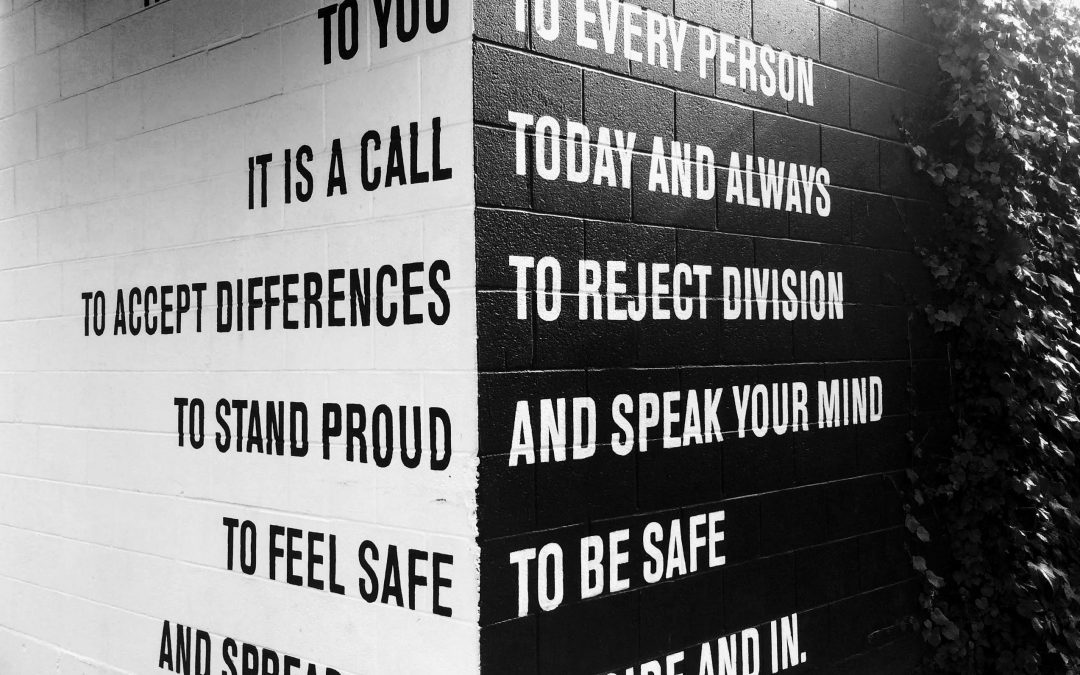I’ve often pondered what prevents seemingly confident, efficient, and intelligent professionals from being assertive and voicing their thoughts and opinions, considering that most have some very interesting insights to share.
Initially, I thought it might stem from hesitancy within a group setting, and while that may be true to some extent, upon deeper reflection, I realized it goes beyond surface-level dynamics and likely relates to the fundamental need for safety.
As humans, it’s ingrained in us to seek belonging, love and care for our wellbeing; after all, we’re social creatures. Feeling safe and secure is a primal need for any living being, yet regrettably, we often take it for granted. We may assume that since our physical needs are met, we’re automatically safe and secure, but this couldn’t be further from the truth.
Meeting our basic needs is essential, but we also require fulfilment of our psychological needs. Alongside physical safety, we need psychological safety to progress from good to great and truly thrive.
In today’s dynamic corporate environment, fostering psychological safety has become paramount for promoting employee well-being, creativity, and organizational success.
Psychological safety entails a shared belief within a team that it’s safe to take interpersonal risks, such as speaking up, sharing ideas, and expressing concerns, without fearing repercussions to one’s reputation or career.
Harvard Business School professor Amy Edmondson popularized this concept, defining it as “a shared belief held by members of a team that the team is safe for interpersonal risk-taking.”
In psychologically safe environments, individuals feel comfortable expressing themselves authentically, engaging in mindful conflict and contributing their unique perspectives without the fear of ridicule or punishment.
This aspect is crucial for thriving in our professional environments, as psychological safety enhances relationships, creativity, innovation, collaboration, productivity, and engagement. When we feel safe, we perform at our best.
Whenever I have the opportunity to discuss this aspect, I often bring it up through the lens of mindful leadership. I emphasize to professionals, especially those in leadership positions, to consider a few key points:
Be an exemplary leader: Leaders play a vital role in fostering psychological safety within their teams. By demonstrating vulnerability, actively listening to employees’ concerns, and embracing diverse perspectives, leaders can set the tone for open and transparent communication.
Encourage feedback and input: Invite teams to share their ideas, concerns, and feedback openly, and ensure you do the same. Actively seek input from team members and show appreciation for their contributions, regardless of rank or seniority.
Promote a culture of learning: Embrace a growth mindset and encourage a culture that values learning, experimentation, and continuous improvement. This allows professionals to view setbacks as opportunities for growth rather than failures.
Establish clear values and expectations: Clearly state behavioural expectations within the team and lead by example. This fosters empowering values for all team members.
Cultivate respect as a core value: When mutual respect, active listening, and constructive feedback are the norm, teams become more accountable and cohesive.
Embrace diversity: Create space for individuals from various backgrounds, ethnicities, ages, genders, perspectives, and experiences. Acceptance of diversity should be a top-down organizational value.
Address issues promptly: Take swift action to address instances of incivility, harassment, or disrespectful behaviour. Leaders must remain committed to creating a safe and inclusive work environment for all employees.
Psychological safety is the cornerstone of a thriving organization. Through leadership commitment and a focus on continuously improving organizational culture for employee well-being, where they feel valued, supported, and inspired to reach their full potential, psychological safety can be nurtured.
In doing so, leaders can unlock the collective potential of their teams and drive sustainable growth and success in an increasingly complex landscape.
ABOUT THE AUTHOR

Nidhi Sharma
Counselling Psychologist, Life Coach (ACC-ICF), Behavioural Facilitator, TedX Speaker
Taking Life from Good to Great.
Fuelled by the conviction that “Good is the enemy of Great”, Nidhi is a seasoned Counselling Psychologist, Accredited Life, Career & Focus Coach and a catalyst for igniting personal and professional growth. She is a positive psychology practitioner and embodies the belief that each of us possesses infinite potential, waiting to be unlocked.
With a remarkable track record spanning over 14+ years, Nidhi has established herself as a trailblazer in behaviour transformations, personal development, and fostering a growth mindset.
Her core belief, rooted in the notion that “We are not our behaviour,” fires her commitment to assisting individuals in modifying their behaviour to create a truly fulfilling life.
Passionate about coaching, Nidhi transforms self-promotion into a journey of self-discovery.
She is inspired by mythology to get deeper understanding of personal growth; drawing insights and learnings that inspire individuals on their own journeys.
Outside of her work, Nidhi finds inspiration in adventurous endeavours like trekking, marathon running, which further cultivates her resilience and perseverance.
By exploring uncharted territories, Nidhi helps her clients and herself surpass limitations and strive to take life from “Good to Great!”

